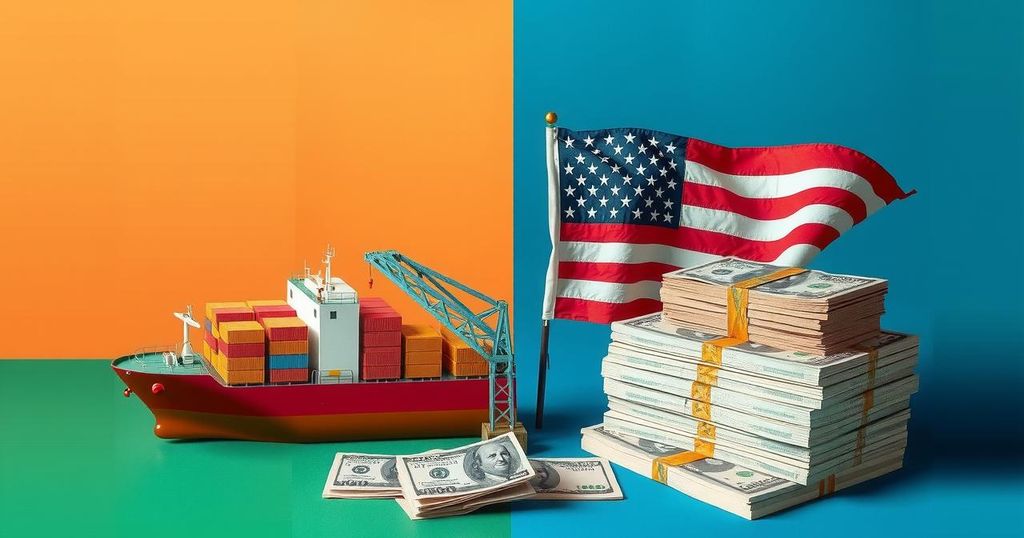Exemption from Tariffs Key to Boosting India-U.S. Trade Relations
Exporters assert that exempting India from U.S. reciprocal tariffs would boost bilateral trade. The Federation of Indian Export Organisations argues for India’s waiver due to constructive engagements with the U.S. However, experts caution that exemptions may come with significant concessions. Ongoing discussions aim to finalize a trade agreement by fall 2025, addressing tariff complications and market access.
Exempting India from the imposition of reciprocal tariffs by the United States is anticipated to enhance bilateral trade, according to exporters. The levying of tariffs on Indian goods could adversely affect shipments to the U.S., causing concern among stakeholders.
U.S. President Donald Trump has signaled that automobile tariffs will soon be enacted while suggesting that exemptions may be considered for select countries by April 2. The Federation of Indian Export Organisations (FIEO) emphasized that India merits a waiver due to its positive engagements with the U.S. and efforts toward a Bilateral Trade Agreement.
Ajay Sahai, Director General of FIEO, stated that the Mission 500 aims to boost bilateral trade from approximately USD 200 billion to USD 500 billion, underscoring the necessity for tariff exemptions to facilitate seamless trade operations. An additional exporter noted that such an exemption could eliminate tariff uncertainties, boosting U.S. exports significantly.
While the U.S. has placed high tariffs on Chinese goods, the Global Trade Research Initiative (GTRI) believes it is unlikely that India will be granted an exemption from tariffs, predominantly due to Trump’s characterization of India as a “high-tariff” nation. Ajay Srivastava, GTRI Founder, cautioned that any exemption could come with stringent concessions demanded by Trump affecting various sectors more than just trade.
India has already taken steps to eliminate the equalization levy on U.S. tech firms, with Srivastava advocating that India must remain resolute and safeguard its strategic interests amidst these negotiations. He affirmed that any tariffs imposed by Trump could be viewed as arbitrary and unsustainable.
On a related note, talks commenced between Indian and U.S. officials regarding a prospective bilateral trade agreement. These discussions involve Brendan Lynch, Assistant U.S. Trade Representative, engaging with Rajesh Agrawal, Additional Secretary in the Department of Commerce. The goal is to reach an initial agreement phase by fall of 2025.
The U.S. is seeking increased market access in various sectors, while India is considering duty reductions in labor-intensive industries such as textiles. According to recent data, India’s key exports to the U.S. include pharmaceuticals, telecom instruments, and precious stones, while major imports comprise crude oil and electrical machinery.
In summary, the exemption of India from reciprocal tariffs proposed by the United States is crucial for enhancing bilateral trade ties, as articulated by industry stakeholders. The discussions regarding the bilateral trade agreement underscore the need for greater market access and cooperation. However, the uncertainty surrounding tariff exemptions raises concerns, pointing to a complex interplay between trade policies and strategic national interests.
Original Source: www.livemint.com








Post Comment